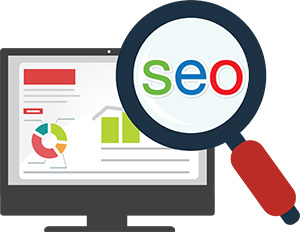It seems when discussing marketing, we either speak of paid marketing — such as Google AdWords — or organic marketing tactics involving search engine optimization (SEO). But what about using them together to formulate a concise and inclusive marketing plan?
Here are four reasons why having a paid and organic plan can cover the most marketing territory:
1. You’ll improve your keywords.
When you are conducting keyword research, you need analytics to help create the best web pages for your target audience. In other words, SEO is the result of paid keyword research.
By jumping into Google AdWords and running a keyword check using your location, products, services and other key phrases to guide you, you will get analytical data you can use to decipher the keywords that will offer the best return on investment (ROI) for your business. You can then add this data into your general and local SEO to formulate the keywords — both macro and micro — that you need to rank on Google searches.
On the flipside, analytics also can show you what words you do not want to try to rank for on Google searches, and help you avoid keywords that serve your website little to no purpose for ROI.
2. SEO can help you create ad budgets.
SEO can flip backward to paid marketing tactics and help with ad budgets. Using Google Analytics, you can see how you are placing on Google searches for the keywords you used paid marketing for, to research and decide upon for your website.
Google Analytics can show you information that is driving your customers to your page, and which keywords or web pages are capturing the best ROI. This knowledge can help your paid budget by letting you see which keywords need a little “boost” as compared to keywords that are driving customers organically.
Let’s say your general pest, bird and wildlife services pages rank organically in the Top 4 of a local Google search, but your page on termite service falls behind. If you have done an SEO overview and know the reason is not based on a low-performing web page, then perhaps the page needs a little paid “boost,” regarding an increase in relevant keywords you are bidding on or bid increases.
3. Pay-per-click can give you the analytical data needed for SEO purposes.
Beyond keywords, there is a wealth of other data that both SEO and paid marketing working in tandem can provide for marketers evaluating the data.
Paid marketing can show you how you rank against competitors, and allow you to visit the back ends of their websites to see what they are doing and what is working and not working. On Google Analytics, you can see which pages on your website people are staying on the longest, the bounce rates, and the geographical data. This data can carry over to paid marketing so you can target and bid effectively — or make changes to your website, such as a sales funnel to increase time and lower bounce rates.
4. SEO and paid marketing can help with missed marketing opportunities.
Marketing synergy between paid and organic comes down to covering all bases, so no marketing opportunities are missed. If done correctly, SEO can help your website get the proper boost so your web traffic can bring you an idea of what people are searching for organically, which you can then carry over to paid marketing.
For example, if you missed the opportunity to create a landing page for a popular service, or to separate services onto their own pages, then looking at your paid marketing could help you organize better on the organic end via the website.
In addition, using paid marketing to see search terms can help you realize what should be added to your website if you aren’t bidding on the keyword yet. This can create enough content to support this promising keyword on your web page.
Any missed marketing opportunity can make your website less marketable. Having paid marketing and organic marketing work in unison can allow for any new marketing tactic to be caught and implemented quickly and efficiently. pmp
Derek Whitney is a content marketing specialist at WeGetLeads.com, an online marketing company that focuses solely on pest management marketing and lead generation. Contact him at whitney.derek1@gmail.com.

Leave A Comment